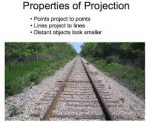The Closer to Truth team recently did a series of interviews addressing the following question: Do persons have souls? Interviewees included philosopher and cognitive scientist Daniel Dennett; author, medical doctor and holistic healer, Deepak Chopra; philosopher Eleonore Stump; Warren Brown, Director of the Edward Travis Research Institute at the Fuller Theological Seminary and Professor […]
|
|||||
|
When ecently reminded of the images in Catholic texts and prayers, I considered, again, my hunch that mathematics could somehow help connect unrelated aspects our experience, in particular counterintuitive religious images and familiar sensory experience. I am not suggesting that mathematics would explain these images, but more that it could be used to encourage, perhaps […] A recent article in Quanta Magazine anticipates the publication of the 6th edition of Proofs from The Book, collected by Martin Aigner and Günter Ziegler. The original volume was inspired by the well-known and prolific mathematician Paul Erdős, who traveled the world, participating in countless collaborative efforts, and who would say of proofs that he […] I have been particularly concentrated on whether mathematics can tell us something about the nature of thought, something that we have not yet understood about what thought is made from, how it happens, how it is connected to everything else in the universe. These questions inevitably point me in the direction of research in cognitive […] I find the relationship between mathematics and vision fascinating. Even within mathematics itself, seeing how the geometric expression of ideas can clarify or further develop countless mathematical thoughts is always worth noting – like the graphs of functions, or the projections of figures. I’ve written before about the relationship between the brain’s visual processes and […] 
Deciphering the principles of self-organizing systems is often at the heart of new ideas in biology, including neurobiology. A complex, self-organizing system contains a large number of elements that have predictable, local interactions with each other, but these local interactions create global properties that cannot be predicted from even the most well-understood local events. This […] The Riemann Hypothesis came to my attention again recently. More specifically I read a bit about the possibility that quantum mechanical measurements may provide a proof of a centuries-old hypothesis and one of mathematics’ most famous enigmas. Within mathematics itself, without any reference to its physical meaning, the Riemann Hypothesis highlights the kind of […] An article published in May in Quanta Magazine had the following remark as its lead: A surprising new proof is helping to connect the mathematics of infinity to the physical world. My first thought was that the mathematics of infinity is already connected to the physical world. But Natalie Wolchover’s opening few paragraphs were inviting: […] In 2011 John Horgan posted a piece on his blog, Cross Check (part of the Scientific American blog network), with the title, Why Information can’t be the basis of reality. There Horgan makes the observation that the “everything-is-information meme violates common sense.” As of last December (at least) he hadn’t changed his mind. He referred […] 
A recent discovery in the history of science and mathematics has prompted a number of articles, links to which are provided at the end of this text. Astrophysicist and science historian Mathieu Ossendrijver, of Humboldt University in Berlin, made the observation that ancient Babylonian astronomers calculated Jupiter’s position from the area under a time-velocity graph. […] |
|||||
|
Copyright © 2025 Mathematics Rising - All Rights Reserved Powered by WordPress & Atahualpa |
|||||


Recent Comments